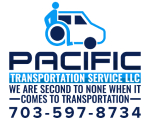Understanding the Unique Needs of Wheelchair Transportation Services
Transportation services have become a vast industry in the 21st century. Now, a sector dedicated to meeting the distinctive needs of individuals who rely on wheelchairs even exists. Wheelchair transportation services play a crucial part in ensuring inclusivity, independence, and a seamless journey for those with mobility challenges. However, wheelchair transportation does not come without its complexities.
Here, we will be exploring the unique needs it addresses and the essential role it plays in enhancing the quality of life for anyone who might need assistance in walking. So, let’s take a look at the unique needs of wheelchair transportation services.
1. Diverse Mobility Challenges
Wheelchair users involve a diverse group with varying mobility challenges. Some individuals may use manual wheelchairs, while others rely on power wheelchairs or scooters. Moreover, some disabled individuals might need greater human assistance to operate their wheelchairs than others.
Understanding these diverse needs is necessary for wheelchair transportation services. It gives you the information you need to tailor transportation solutions for each passenger.
2. Focus on Accessibility
The accessibility of wheelchair transportation is a crucial principle. Unlike regular transportation, vehicles designed for wheelchair access must have features like ramps or lifts to facilitate easy entry and exit for passengers.
Furthermore, these vehicles must meet accessibility standards and be well-maintained. This is very important to guarantee a safe and comfortable experience for the individual using the service.
3. Trained and Compassionate Staff
Another important thing that the operating wheelchair transportation providers need is a team of trained and compassionate professionals. Drivers and attendant staff of the transport vehicle must be well-versed in assisting passengers with various mobility aids.
This type of transportation business is all about creating a supportive and caring environment for every individual. That’s why the staff must have the knowledge and expertise to secure wheelchairs properly and respond to specific needs with empathy and respect.
4. Flexibility in Scheduling
It is also important to recognize that individuals with mobility challenges may require more time to board and exit the vehicle. Therefore, wheelchair transportation service providers need to offer flexibility in scheduling.
The flexibility will allow the passengers to go about their journeys comfortably and safely without feeling rushed. This way, the providers will be able to provide a better experience for them.
5. Door-to-Door Service
Unlike traditional transportation services, wheelchair transportation often provides door-to-door service. This level of personalized attention is essential for individuals who may face challenges independently in public spaces.
Door-to-door service contributes to a sense of security and independence for passengers. Also, it contributes to the physical accessibility of individuals who may have unique needs.
6. Safety Standards
It goes without saying that the safety standards are non-negotiable for wheelchair transportation. This involves regular maintenance of vehicles, ensuring proper wheelchair securing systems, and conducting thorough training for staff to handle emergency situations with expertise.
The service providers must remember that safety is not just a criterion to meet. Instead, it should be a commitment to ensure the well-being of every passenger.
7. Communication is Key
Effective communication is also critical in wheelchair transportation services. Providers must establish clear communication channels with passengers to understand their specific needs, address concerns, and provide timely updates on service arrangements.
It will allow you to make the necessary customization for each individual’s needs. Moreover, it will establish a transparent and understanding relationship between service providers and passengers.
8. Community Integration
Wheelchair transportation solutions go beyond mere mobility. They contribute to the broader goal of community integration. With reliable and accessible transport, individuals with mobility challenges can actively participate in community events, social gatherings, and other daily activities like any normal person.
It brings a transformative force that can break down social barriers and foster a sense of belonging within the community.
9. Navigating Regulatory Compliance
Regulatory compliance is also quite complex for wheelchair transport providers since it involves the well-being of physically disabled individuals. This includes adhering to accessibility laws and licensing requirements and continually staying well-informed of evolving standards to ensure a legally compliant and ethical operation.
10. Embracing Technological Advances
In the modern era, technology plays an essential role in enhancing the efficiency of wheelchair transportation services. From user-friendly booking platforms to real-time tracking systems, leveraging technology ensures a seamless and convenient experience for passengers. It’s about embracing innovation to not only meet the diverse needs of individuals with mobility challenges but also to provide them with a better travel experience.
Paving the Way for Inclusive Mobility
Wheelchair transportation serves as a lifeline for individuals with mobility challenges. It breaks down barriers to accessibility and fosters a sense of independence for individuals with physical disability. By understanding the unique needs of this demographic and implementing tailored solutions, these services contribute significantly to creating an inclusive and supportive transportation ecosystem.
As we continue to strive for a more accessible world, wheelchair transportation stands as an example of progress. It ensures that everyone can travel the world with dignity and ease, regardless of mobility challenges.


